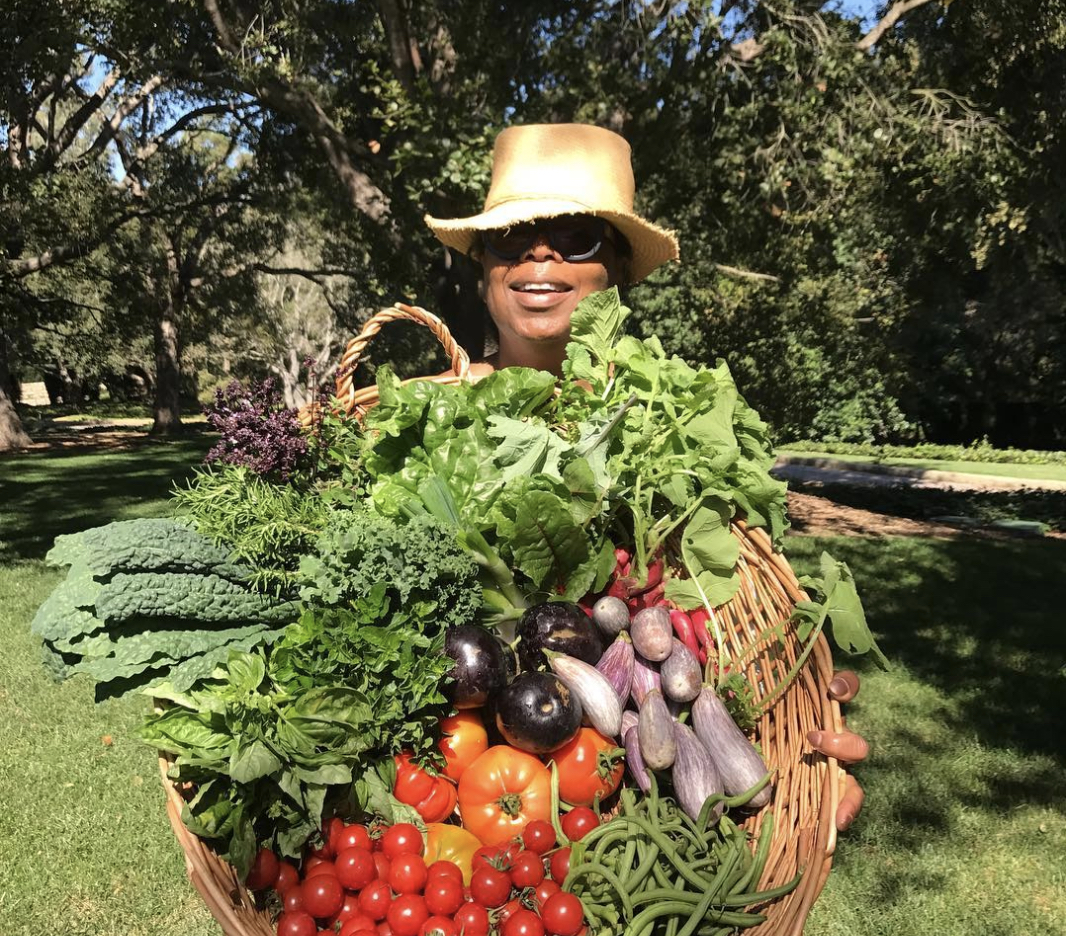All I could say when I finished reading Michael Pollan’s In Defense of Food was:
Okay, not intentionally racist, but racist in impact. As I put pen-to-paper finger-to-keyboard and write this out, I fully understand that my statement probably will have many supporters of nutritionism up in arms about its validity. Though, I do not intend to throw the baby out with the bathwater: after all, Pollan is not saying anything incorrect, as health does lie in understanding what we are putting into our bodies, and specific to my point, it is not as though Pollan wrote this book saying, “Yasss, f*ck ____ people!” However, I want to critique the conversation he instigates, which leaves many black and brown communities at the door, exacerbating the economic burden ethnic minorities face in having few options to afford the foods that the privileged communities Pollan had in mind can easily charge to their Visa Diamond.

We stan Oprah, but the image of a strong, beautiful, absolute boss of a black woman with a cornucopia of fresh, vibrant vegetables is by no means a common sight in the United States. Maybe we need to create circumstances conducive to this being more commonplace? Source: http://www.foodrepublic.com/2018/01/09/president-oprah-impact-food/
Growing up in a low-income household where the food in our pantry was from WinCo Foods and stacked in rows of four, the notion that we must eat “real food” our grandmas would recognize is troubling to many black and brown people who share the same experience: with how persistent generational poverty is with ethnic minorities, are we to ignore that our ancestors were just as poor, with the same problems? To not address the socioeconomic implications of nutritionism does nothing to alleviate economic circumstances for minority communities who would reap the most benefits from access to healthier foods. Economically privileged communities can afford healthcare and preventative measures, while we are stuck deciding between milk or bread.
Despite nutritionism’s valid points, we cannot preach healthy living without making it cheaper. What are we doing politically to create solutions conducive to accessibility, and not just another capitalistic health craze?

Do you think that there are specific racial implications of Pollan’s proposals that are differentiated from other arguments about class warfare? Obviously capitalism thrives on expropriating violence onto brown and black bodies, but don’t you think that Pollan is primarily classist, and that has uniquely racist implications?
The questions raised by this blog post are very interesting. Clearly, Pollan ignores social-economic factors that play a major role in what food is accessible to us. In general, the “nutrition” movement does not go into details about accessibility. Pollan recommends that you eat food your great grandmother would cook. As mentioned in lecture, food is an identity. Pollan’s great grandmother would have made different food from what my great grandmother would have prepared. Pollan further isolates people of color whose cultural foods do not align with what his great-grandmother would have made. The prominence of cultural foods, such as soul food, is huge. Family recipes and cooking secrets are passed down and cannot simply be abandoned in leu of nutrition. Nutritionists need to recognize the pertinence of cultural foods in people’s lives. Not only does healthy food need to become more accessible, but it must slowly be incorporated into cultural traditions.
Response One
I completely agree with your response to Pollan, as I had the same reaction reading the book. As a person of colour, it felt wrong to completely dismiss a lot of my own families cultural practices that surround food because some old, privileged, white guy doesn’t agree with the way the food system is set up. With even the food pyramid and essential food groups, lower income communities are completely left out of the picture- like you said, they’re often left to choose between bread or milk, not which one comes from a place with good ethical practices in their production. Being able to even take the time to consider how our choices affect and are affected by larger systems feels like an entire privilege in itself, as lower income communities often just worry about having food, and not the type of food. I think nutritionism has some growing to do, in terms of more inclusion with consideration to ethnic practices, socioeconomic status, and modern day effects of colonialism.
Pingback: URL
Pingback: Kubet คาสิโนฝากถอนง่าย
Pingback: วิธีการเล่นหวยออนไลน์กับ Jaywii
Pingback: LSM99PG มีอะไรให้เล่นบ้าง